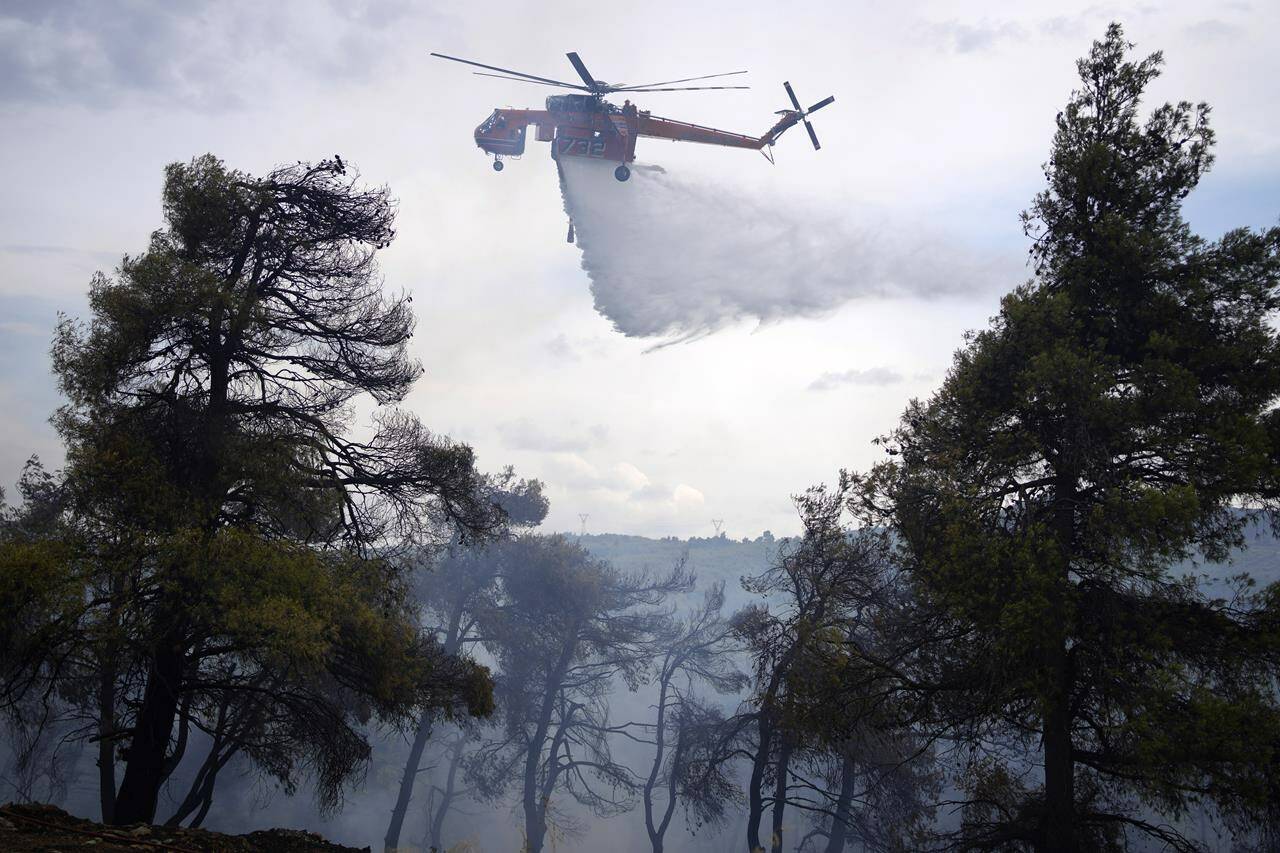Police ordered vehicles off the streets of three regions in Greece Tuesday as a severe storm hammered the center of the country and some of its islands, turning streets into flooded torrents.
Traffic was banned in the central town of Volos, the nearby mountain region of Pilion and on the island of Skiathos until the storm subsides, police said.
The fire department said one man was killed in Volos when a wall buckled and fell on him, while another man was reported missing, believed to have been swept away by floodwaters.
Authorities also sent alerts to cellphones in several other areas of central Greece, the Sporades island chain and the island of Evia, warning people to limit their movements outdoors due to the storm.
Local media reported that torrential rainfall caused streams to break their banks and turned roads into rivers, sweeping cars into the sea in the Pilion area.
Greece’s weather service said the Pilion region was forecast to receive about 650 to 700 millimeters (25.5 to 27.5 inches) of rain over Tuesday and Wednesday, while 550-600 millimeters were forecast for the central town of Karditsa.
The weather service noted that the average annual rainfall in the capital of Athens region is around 400 millimeters.
The storm was forecast to cause heavy rainfall and storms, accompanied by hail, thunder and strong winds in the Aegean.
The extreme weather comes on the heels of major wildfires that hit Greece over the past few weeks, with some burning for more than two weeks and destroying vast tracts of forest and farmland. More than 20 people were killed in the fires.
A massive wildfire that destroyed vast tracts of forest in northeastern Greece over 17 days was in abeyance on Monday, although hundreds of firefighters were still tackling pockets that continued to burn, the fire department said.
Reinforcements were sent over the weekend to battle the wildfire burning in the Evros region near the border with Turkey, bringing the total number of firefighters on Monday to 741, backed by 124 vehicles and two aircraft. The blaze has been blamed for the deaths of 20 people, all believed to have been migrants who had recently crossed the border.
“There is no active front in the Evros area right now,” Greece’s minister for civil protection, Vassilis Kikilias, said. “We remain on alert, and the battle obviously continues.”
The fire, which broke out on Aug. 19 near the northeastern city of Alexandroupolis and joined with other blazes to form one massive wildfire, burned more than 93,000 hectares (230,000 acres) of land by Sunday, according to the European Union’s Copernicus Emergency Management Service, making it the largest single blaze to hit an EU country since records began in 2000.
Wildfires are common in Greece and other southern European countries during their hot, dry summers. Dozens of fires have been breaking out each day across the country for weeks, with the fire department saying its forces tackled 82 wildfires between Sunday afternoon and Monday afternoon, with 51 of them having broken out in those 24 hours.
Another fire broke out Monday in woodland on the northern outskirts of Athens. More than 70 firefighters, including 18 from France, backed by two airplanes and three helicopters, managed to bring the blaze under partial control within hours, the fire department said.
It said a man was arrested on suspicion of causing the fire through negligence.
With its firefighting forces stretched to the limit, Greece appealed for help from other European countries and has received hundreds of firefighters, as well as a fleet of planes and helicopters, from across the continent. On Sunday, forces from France, Spain, Cyprus, Romania, the Czech Republic, Bulgaria, Slovakia, Albania and Serbia were still operating in the country.
READ ALSO: 2 arrested for arson as multiple wildfires continue to burn across Greece
READ ALSO: Massive forest fire in Greece still burning for 7th day

